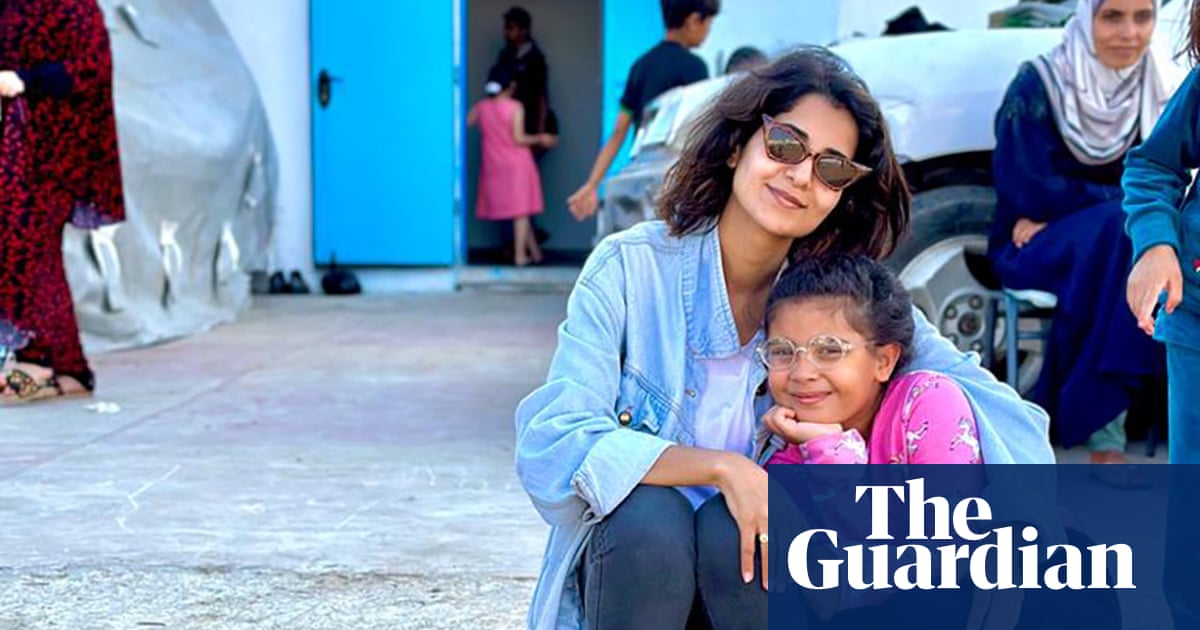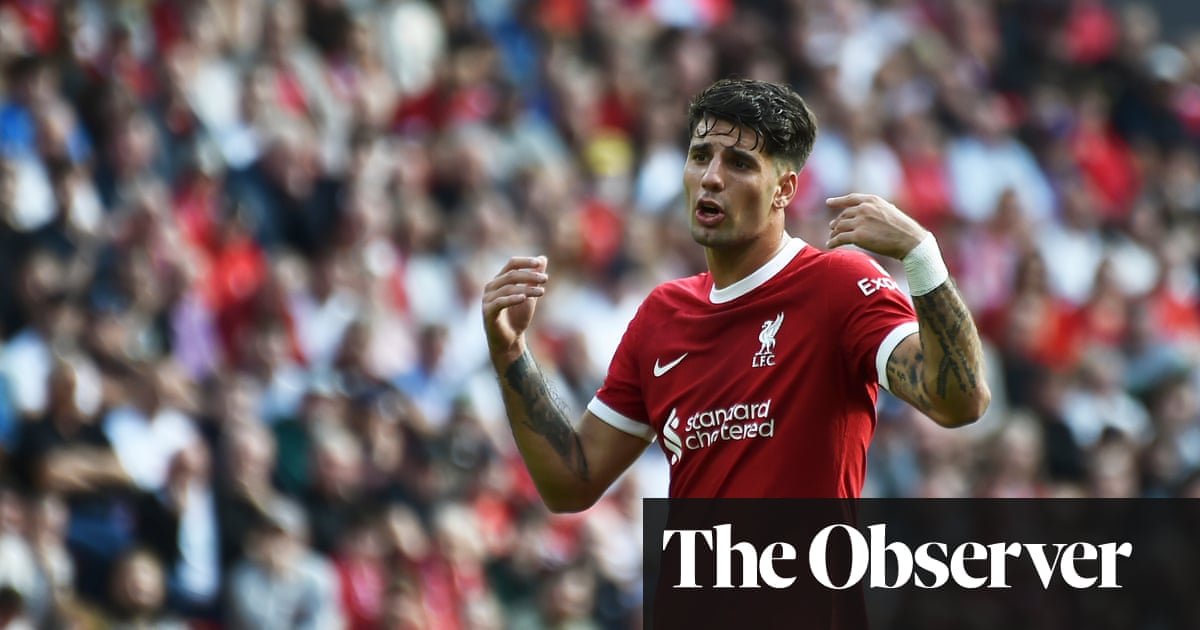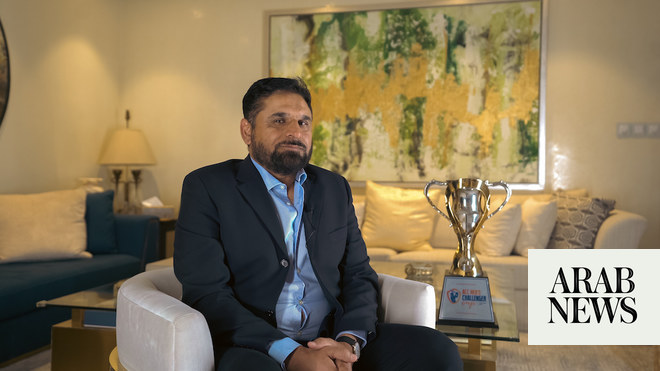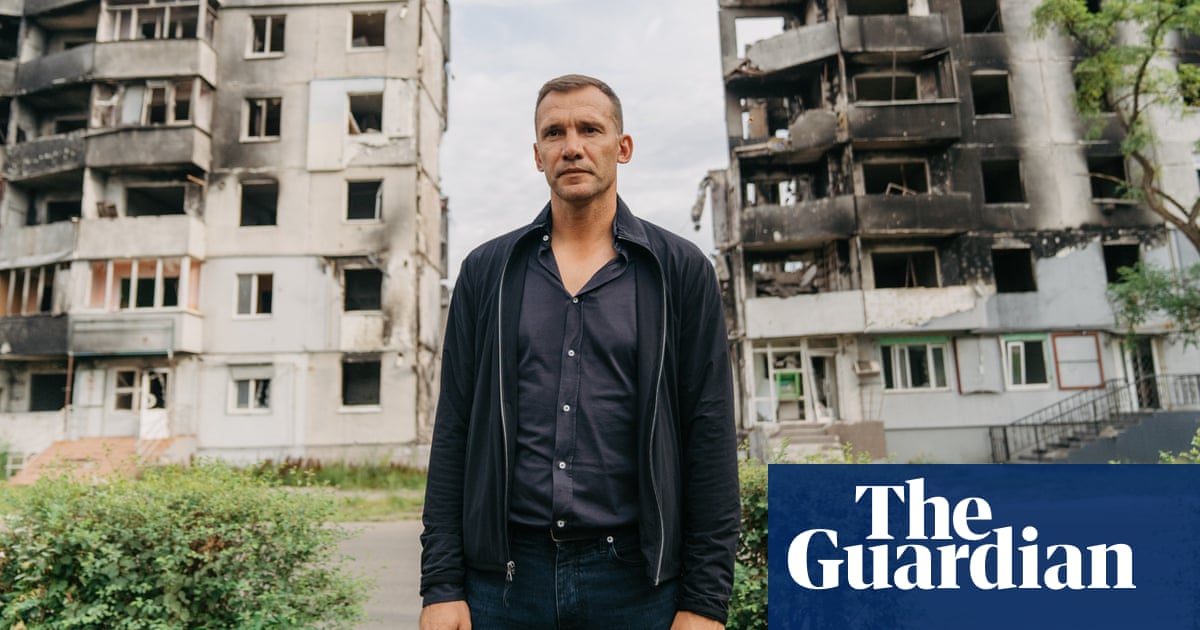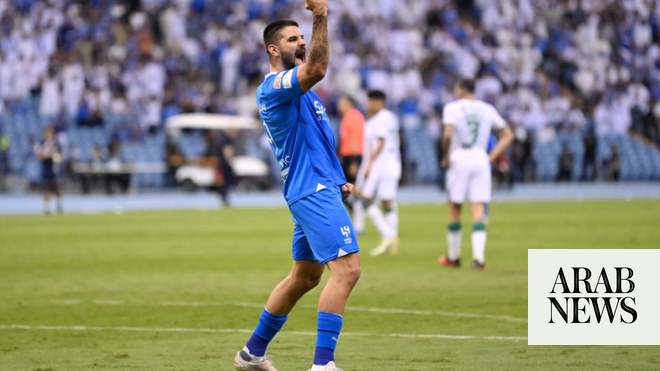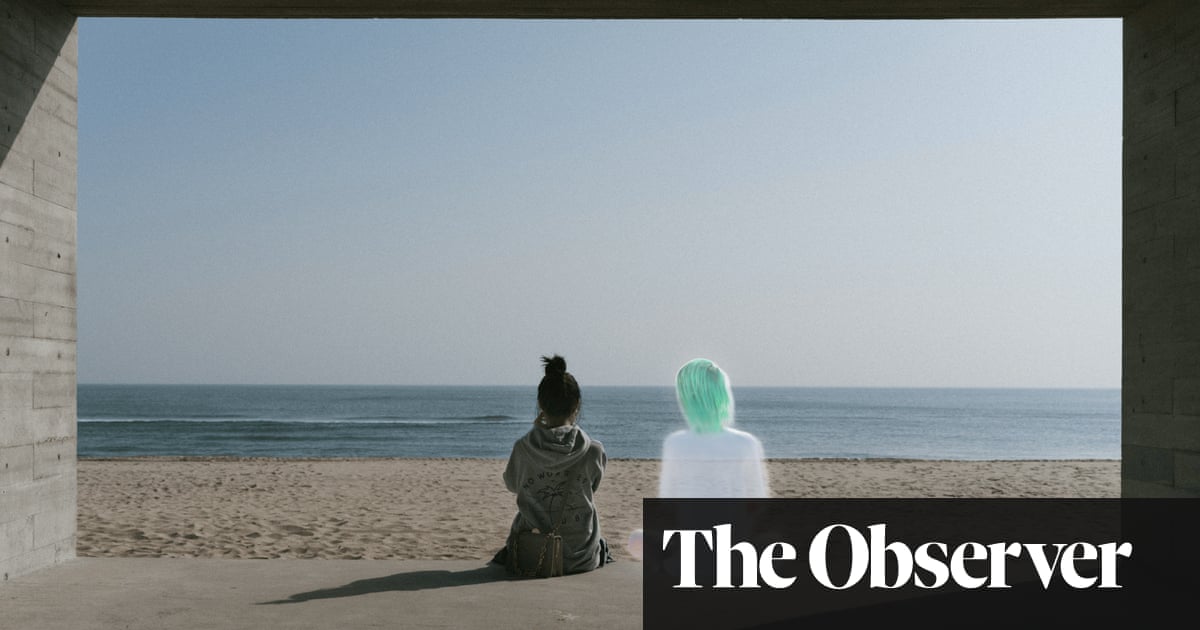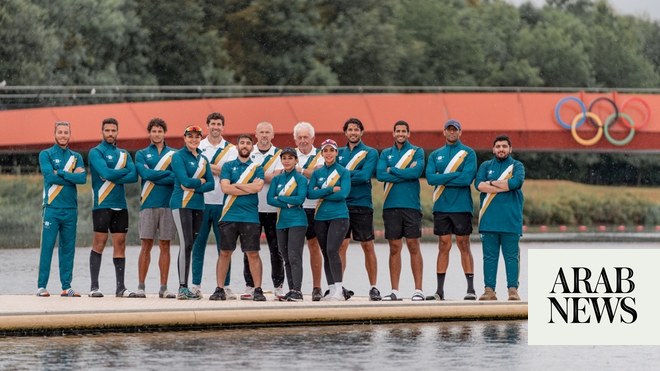
Former British double world champion eyes rowing greatness for the Kingdom against the odds, starting with this month’s Asian Games
LONDON: Against the backdrop of Saudi Arabia’s sweeping, sun-drenched deserts, Mat Tarrant faces a monumental challenge to develop elite rowers capable of competing on the global stage.
For the latest updates, follow us on Twitter @ArabNewsSport
Yet the Saudi Rowing Federation’s performance director and head coach is spearheading a rowing revolution in the Kingdom against all the odds.
The historic appearance of the country’s first rowing Olympian Husein Alireza at the Tokyo 2020 Olympics fueled Tarrant’s belief that Saudi Arabia has the potential for greatness.
But, as the British double world champion told Arab News, transforming a rowing minnow into an established force will take time and relentless commitment.
“I think my passion overruns sometimes,” Tarrant said as he prepared for this month’s Asian Games in Hangzhou, China. “I don’t know how to take any time off for myself. I don’t tend to go on holidays.
“If I take a rest day, I end up just walking to my desk and I sit there all day, analyzing data, putting annual plans together, always trying to think ahead and think about what’s next. But I love what I do. I’m incredibly fortunate to be in this position.”
Tarrant, 33, who hung up his oars following the Tokyo Olympics, started his role in July 2022 and moved to Jeddah two months later.
For several years before this, though, he had been writing training programs for Saudi Rowing’s former president, Mohammad Hadhrawi, and four other fledgling rowers: Alireza, Sultan Al-Shali, Kariman Abuljadayel and Alia Komsany.
Tarrant fortuitously met Hadhrawi on the sidelines of the 2018 World Indoor Rowing Championships in London, where he was promoting his online coaching company RowElite.
The Saudi Rowing Federation was in its infancy then, with its five rowers eager to turn their hobby into a career. Alireza, for example, began rowing at the University of Cambridge.
Abuljadayel had already displayed her sporting prowess after becoming the first Saudi woman to run in the 100 meters at the 2016 Olympics.
“They were the five who made up Saudi Rowing (at the start) and had the drive and determination to turn it into a federation,” Tarrant said.
The federation had already recruited an esteemed British coach, Bill Barry, who won silver at the 1964 Olympics.
Tarrant, meanwhile, provided advice to the rowers by telephone and assisted Barry at UK training camps.
A seasoned rower since his teenage years, his glittering career included winning gold medals at the World University Championships in 2010 and the World Under-23 Championships in 2012.
A British Olympic team member for 10 years, Tarrant also won five World Championship medals, including golds in the eight and coxed pair events respectively in 2014 and 2015.
Tarrant replaced Barry, 83, as head coach last year, although the latter still advises Saudi Rowing and helps his successor at UK training camps.
Together, they have orchestrated the Saudi Rowing Federation’s meteoric rise — with Alireza its totemic figure.
Only four years after the federation was formed, in 2021 Alireza reached the D Finals in the men’s single sculls at the Tokyo Games.
Tarrant paid lavish tribute to the talismanic impact of Alireza, whose father Ali has succeeded Hadhrawi as the federation’s president.
“He’s a great guy and his family have done so much for the sport of rowing in this Kingdom,” he said. “Behind the scenes and in front of the camera, they’ve probably had the biggest impact out of everybody on sort of getting this sport up and running. As an athlete, Husein did an amazing job representing the Kingdom at the Tokyo Olympics.
“Since then, he was our captain when we went out to the Asian Championships in November. He stroked the men’s quad and he did a great job of mentoring those guys and helping them understand racing, because the three guys sat behind him had never competed at a rowing regatta before in their entire careers.
“He’s sort of stepped away a little bit from the athletic side of things but he’s still helping to develop the sport. He still goes out of his way to go to schools, to local clubs, and businesses and Aramco to give presentations on rowing to talk to the children about his Olympic successes and goes around trying to inspire the next generation to follow in his footsteps and take part in this amazing sport.”
Tarrant also hailed Alireza’s father Ali and the federation’s CEO Yousef Jelaidan for their “real drive and passion.”
For example, the federation organized its first large-scale training camp at Walton Rowing Club in the UK in July-August 2022. Further training camps have taken place in Italy, Vienna and the UK since then.
“Just over a year and a half ago, we didn’t have a training center and that was one of the first things Yousef did when he came in was find a building that we could train in that had access to water. Within a matter of months, he secured that,” Tarrant added.
His rowers epitomize the same ferocious dedication to the sport — a hallmark of any top athlete.
“They leave their homes at 4:30 in the morning to get here on time,” Tarrant said. “We start the morning with stretching and mobility at 5:30 a.m. By 6 a.m., they’re on the water doing a two-hour session in the heat and then following that, they drive an hour back into Jeddah to start their full-time jobs and they’re working there from about 9 or 10 o’clock until say 3 or 4 p.m. in the afternoon when they’ll then go to the gym and complete another session that’s anywhere from 90 minutes to two hours.
“Then, they go back into the evening and, just from my experience as an athlete, you just sit basically like a zombie on the couch, eat some food and go to sleep. That’s their day-to-day (schedule) six days a week with Fridays off.”
Tarrant coaches eight senior rowers, and one apiece in the U-23 and U-19 ranks, funded through the Saudi Olympic Training Center. There are also “four or five senior athletes who are knocking on the door of gaining selection into that elite category.”
With the ultra-professional Tarrant constantly driving up standards, Saudi rowers are continuing to flourish competitively.
For example, they won a bronze medal in the mixed relay category at the World Indoor Rowing Championships in Mississauga, Canada, in February.
Tarrant said he was determined to turn this exciting potential into competitive water performances at several upcoming major competitions.
The Asian Games, at which his rowers compete from Sept. 20, “is the big one”, Tarrant said.
“It’s like the Asian Olympics, so you have to make sure you put your best foot forward for that event. What would success be for me? If we can get one or maybe two boats in an ‘A’ final, that will be a very good step. Our best result in the Asian Championships (in Thailand in November-December 2022) was an eighth place.
“If we can make an ‘A’ final, that means we’ve made the top six and I think for a team that is incredibly new to this sport, I think for us that would be a good step in the right direction. Not only are we new to the game of rowing, but our athletes are also very new to sport.
“We’re racing athletes who have been doing this for 5-10 years and our athletes have been doing it for 1-2 years. We’re also dealing with athletes who have full-time jobs and are in full-time education.”
The Asian Games team will comprise a lightweight men’s double scull of Sultan Al-Shali and Turky Alaref; a heavyweight men’s single scull of Rakan Alireza; and a heavyweight women’s scull of Haya Almamy. The team will be supported by racing reserves, heavyweight sculler Talal Alakeel and lightweight sculler Mahmood Numan. The finals will take place on Sept. 24 and 25.
The World Masters Championships, the World Coastal Championships and the U-19/U-23 Asian Championships are also on the agenda before the season ends in mid-October.
Saudi Arabia may not have the rich rowing pedigree of the sport’s behemoths such as Great Britain, but Tarrant is bullish about its long-term prospects.
“I want us to burst onto the world scene. I want us to be competitive with those countries that are every year that are going to the World Cup and the World Championships.
“But it’s going to take a long time. We’re not going to be ready in the next year or two; it’s a long-term development strategy.
“First, we need to become competitive in Asia and once we’re competitive in Asia and we start winning medals and getting on the podium there, we can then qualify for the Olympics. Once we’re playing with the big boys at the Olympics, we can start looking at taking on the more world international levels at the World Cups and the World Championships. If we can get one athlete to qualify (for the Olympics) without the need for a wildcard, I think that would be incredible.”
However, before international excellence can be achieved, Tarrant and his colleagues have recognized the need to adopt “a structured grassroots approach” to attract youngsters.
“This year, we’ve started getting blueprints together for a talent identification scheme,” Tarrant said.
He said there was real “organic growth” in the sport, with young and old alike revelling in a “reverberation of health and fitness.”
Tarrant said: “I really feel in a fortunate position where everything we do is building something that’s going to be an incredible addition to the athletic catalog you can get when you come to Saudi Arabia.”
And, given that rowing is at such an embryonic stage in the Kingdom, “people that come through the door now stand the best chance of representing their country.”




